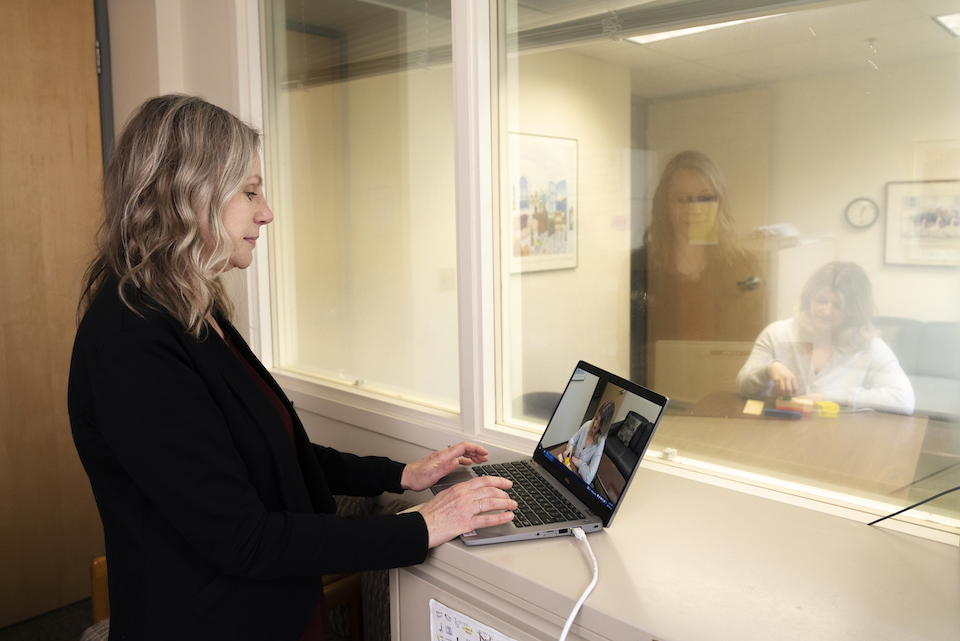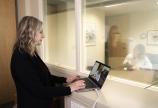Out with the old tech, in with the new
Graduate Studies, Social Sciences
- Erin Hall

Ottawa Community Foundation funds new technology for psychology clinic serving local adults and children
A global pandemic, several climate crises and the constant stream of bad news over the past few years have left the already fragile mental health of many in an even worse situation. Parents seeking help for their children are often met with months-long waiting lists and fees ranging from $150 to $220 per hour to see a counsellor or psychologist. A large donation to upgrade equipment at the UVic Psychology Clinic is helping UVic address these barriers while training the next generation of psychologists.
Time for an upgrade
The on-campus clinic offers sliding-scale psychotherapy and psychoeducational diagnostic assessments for both adults and children in the community. Graduate-level psychology students conduct these services under the supervision of clinic faculty.
For years therapy and educational assessments at the clinic were supervised using one-way mirrors and a VHS recording system. The outdated technology was functional, but cumbersome for everyone and “sometimes distracting to the clients,” says Emilie Longtin (BSc’16), a clinical psychology graduate student. When a child noticed the reflection of the supervisor in the window during the long testing process, it sometimes broke their concentration. Many Gen Z and millennial graduate students are less familiar with the antiquated technology.
“I never thought I’d reach a point where I had to show students how to insert a VHS, but I did. Students had never seen them before, tapes were becoming more expensive and cameras were breaking down,” explains Psychology Clinic Director Dr. Lara Robinson
It was clear an upgrade was needed.
Thanks to a $25,000 donation from the Ottawa Community Foundation, the clinic was able to purchase and install a new Video Audio Learning Tool (VALT) to replace their former VHS training system. This gift paid for nine cameras, five dedicated laptops and installation costs. Both supervisors and students saw an immediate improvement in the services they provide. “This has definitely contributed to greater confidence in my assessments and therapy with clients, as well as building a stronger rapport with clients the first time we meet,” says Lauren, another graduate student who is training at the clinic.
Creative Solutions
The donation was also used to purchase three telehealth laptops, which allowed the clinic to keep teaching and serving clients despite pandemic health restrictions that otherwise would have put a halt on programming. “We are so grateful for this gift. At the start of Omicron, all clients were receiving counselling through telehealth, and some have now moved to a hybrid model,” Lara shares.
The telehealth system also created unique practicum opportunities for students. With location no longer a barrier, the clinic can respond to community needs creatively and efficiently. Following the 2021 forest fires in British Columbia, supervisor Dr. Natasha Wawrykow and several students provided psychological first aid via telehealth to Indigenous families who were directly affected by the fires.
Our primary aim is to provide gold standard training for students. Not only does that help our clients now, but it allows students to help more people as they graduate and move onward. We will ensure fees are never a barrier to care and continue providing services for people who otherwise wouldn’t be able to afford them.”
—UVic Psychology Clinic Director Dr. Lara Robinson
Related Links
Photos


